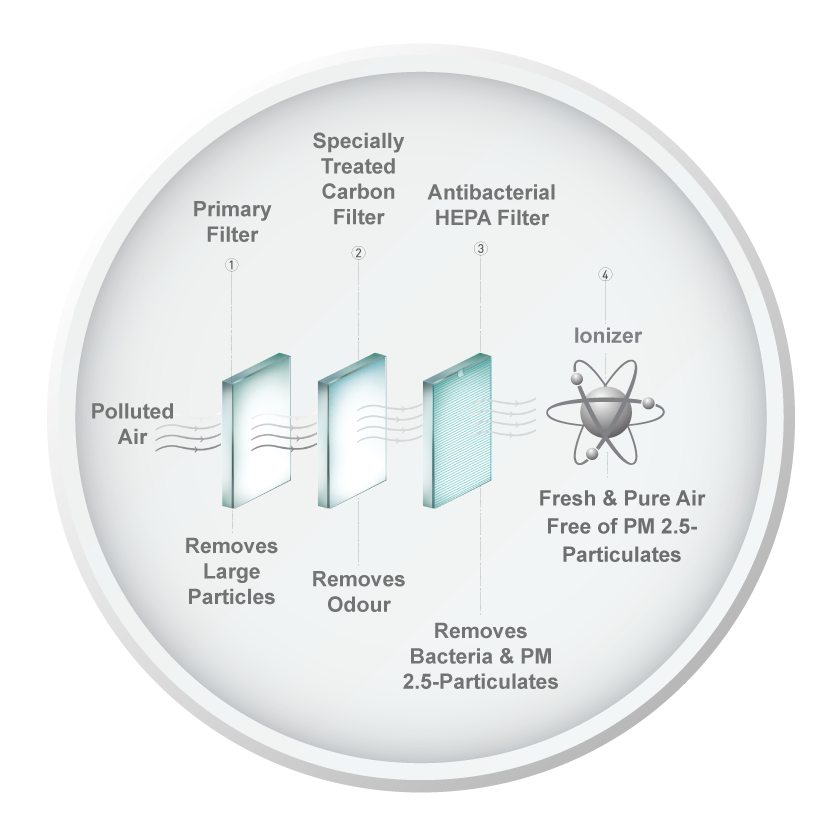HEPA filter is a
term that you come across when you are shopping for any equipment to free your
home from pollutants of any kind. These could be air purifiers or even vacuum
cleaners. HEPA filters are the best for these appliances because of the way
they are designed and the efficiency with which they capture very fine
particles as well. To understand a HEPA filter and its efficiency, you must
know the following:
1. What Is HEPA?
HEPA stands
for High-Efficiency Particulate Air. Hence, a HEPA air filter provides
air that is free from particulate matter with a high level of efficacy. A true
HEPA filter is declared so after being tested and approved by certification
authorities.
2. What Efficiency Levels Should One Expect?
With a HEPA filter installed in
your air purifier or vacuum cleaner, you can expect it to capture 99.97% of
particulate matter, including gases and microbes, provided their size is
greater than 0.3 microns. This is the threshold for qualification, but they are
capable of capturing even smaller particles. A micron is one-millionth of a
meter. For a better comparison, a spore could be anywhere in the range of 3-40
microns, while a pure oxygen molecule is 0.0005 microns in size. Bacteria fall
in the range of 0.3 to 60 microns.
3. How Do They Work?
The particulate matter gets
trapped in a web of fibres that make up the filter. The process of entrapment
varies with the size of the particles and could be either inertial impact,
sieving, diffusion or interception. Pure and clean air gets released back into
the room after successfully passing through the filter.
4. What Kind of Maintenance Do They Require?
Like all filters, they need to be
cleaned regularly and replaced after fixed intervals. These, of course, vary
with the usage and the quality of air that they filter.
5. What Are the Types of HEPA Filters?
There are the claimed HEPA filters
and the true HEPA filters. The two differ in quality and certifications
received after testing. There are also some other differences in composition
and functionality. Some are considered to be quieter, while others are fitted
with an ionizer.
Irrespective of whether the HEPA
filter is fortified or not, it can be guaranteed to remove even microscopic
pollutants and hence give you cleaner air to breathe.



No comments:
Post a Comment